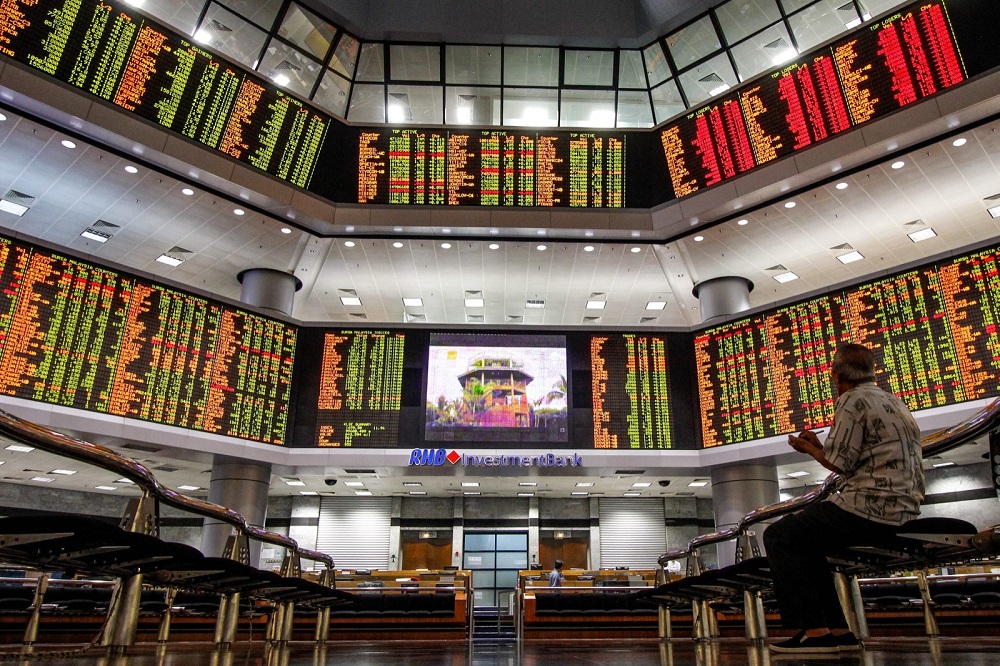KUALA LUMPUR, Nov 2 ― Bursa Malaysia is likely to trade in a cautious mode, with the key index tending to skew higher at between 1,560 and 1,610 points influenced by external factors, especially developments on the trade deal between the US and China.
AxiTrader Asia Pacific market strategist Stephen Innes said market players would closely watch the updates on phase one of the trade deal, which is widely expected to be signed during the Asia-Pacific Economic Cooperation (Apec) summit in Chile on November 16-17.
Although the summit was cancelled due to social unrest in the country, US President Donald Trump, in a tweet last Thursday, said the search is ongoing for a new location for him and Chinese President Xi Jinping to sign the deal.
“I'm still optimistic phase one deal gets signed, but US-China trade talks are coping to feature prominently in the conversation, especially the ones focusing on the rollback of existing tariffs.
“The 1,600-point offers significant resistance (for Bursa), but I think a test is possible next week so long as the phase one trade talks don't get aborted and the ringgit versus yuan continues to strengthen,” he told Bernama.
Innes said the Chinese yuan is stable and getting stronger, wherein this would provide positive regional risk vibes going forward.
On the local front, he said Bank Negara Malaysia’s (BNM) Monetary Policy Committee (MPC) meeting, which is suggesting a combination of external and internal factors at play, would also weigh on local sentiment next week.
The sixth and last MPC meeting for the year is scheduled on November 5.
BNM has reduced the overnight policy rate by 25 basis points (bps) to 3.0 per cent at its third meeting on May 7, the first time since July 2016.
Innes said the recent US Federal Reserve’s (Fed) 25 bps rate cut offered policy wiggle room for BNM to ease but the central bank would most likely hold off while giving a dovish nod to January to allow the expansionary aspects of the budget to take effect.
“I think the foreign direct investment sweeteners in the budget are good for inflows as it will attract more business to Asia and good for the FTSE Bursa Malaysia KLCI (FBM KLCI),” he said, adding the recent rally in palm oil price would continue to lend support to local sentiment.
On a Friday-to-Friday basis, the FBM KLCI rose 23.34 points to 1,593.34 from 1,570 previously.
The local market was traded for only four days as it was closed on Monday, October 28, in lieu of the Deepavali public holiday which falls on October 27.
Trading was generally volatile during the week just-ended, mainly influenced by the US-China trade talks and Fed’s rate cut that boded well across Asia.
On the scoreboard, the FBM Emas Index surged 119.68 points to 11,280.13, the FBMT 100 Index advanced 117.76 points to 11,089.4 and the FBM Emas Shariah Index gained 25.8 points to 11,824.38.
The FBM 70 jumped 141.34 points to 13,939.92 and the FBM Ace Index increased 108.32 points to 4,979.43.
Sector-wise, the Financial Services Index shot up 428.32 points to 15,574.67, the Industrial Products and Services Index ticked up 0.1 of-a-point to 153.19, and the Plantation Index garnered 113.13 points to 6,749.04.
Weekly turnover reduced to 10.31 billion units worth RM7.94 billion from 12.64 billion units valued at RM8.35 billion in the previous week.
Main Market volume decreased to 7.03 billion units worth RM7.19 billion versus 8.06 billion units valued at RM7.31 billion previously.
Warrants turnover was weaker at 1.22 billion units worth RM204.69 million against 1.63 billion units valued at RM309.57 million.
The ACE Market volume shrank to 2.06 billion units worth RM546.45 million from 2.94 billion units valued at RM727.25 million previously. ― Bernama






















